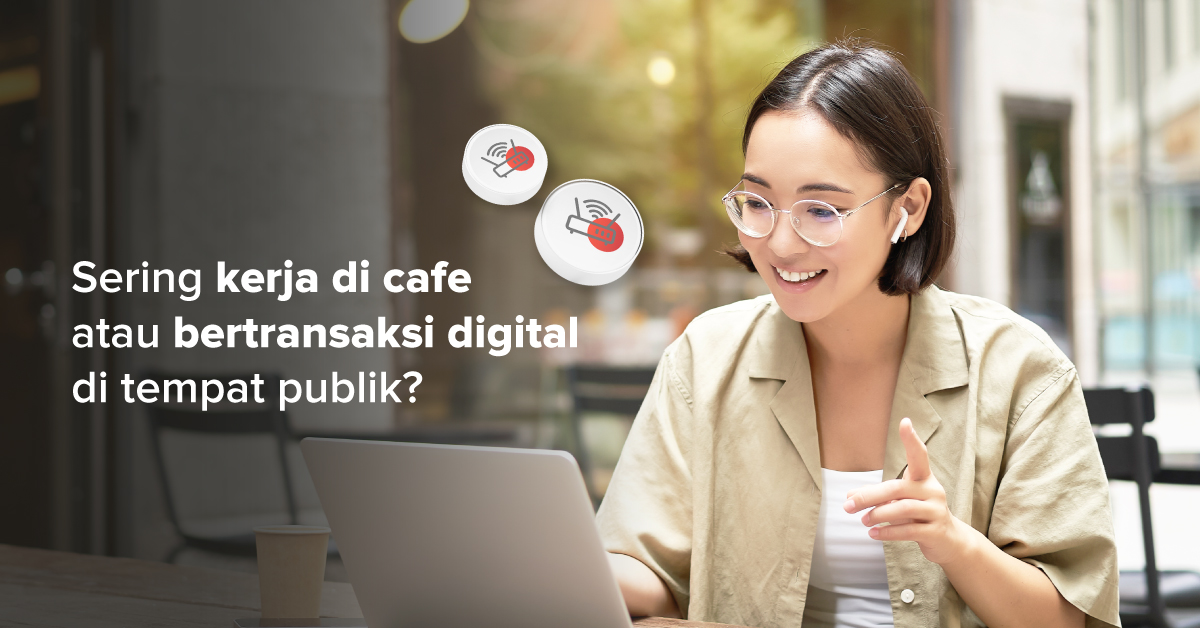You may often use free public Wi-Fi connections in public places such as parks, cafes, terminals, stations, or airports. Using a public Wi-Fi connection is indeed practical and also useful for saving data quota. However, there are other risks behind using public Wi-Fi that you should know about.
Using public Wi-Fi carelessly can pose a risk of cyber-crimes such as phishing and smishing or theft of personal data by irresponsible parties, which can cause financial losses for victims.
To avoid the risks and losses that come from using public Wi-Fi, you can take a look at the following safety tips on using public Wi-Fi.
Check and look at the Wi-Fi name
Before using public Wi-Fi, you have to be careful in choosing which public Wi-Fi to use. Could you check and look at the Wi-Fi name detected on your device, and make sure the public Wi-Fi name used is an official or original Wi-Fi network or not fake?
Criminals sometimes intentionally falsify the name of a Wi-Fi network and provide free access to the network so that it's easy to access data on the victim's device. So, make sure you use an official public Wi-Fi network with a password, don't easily connect your device to a public Wi-Fi network without a password.
Disable automatic connection to Wi-Fi
On devices such as cell phones and laptops, there is usually a feature to automatically connect to open networks such as public Wi-Fi. On some devices, this feature is usually activated because of the device's default settings.
Unfortunately, this feature automatically connecting devices to a Wi-Fi network allows cybercriminals to spread malware or steal personal data such as passwords and banking account pins.
To avoid this, you can turn off the Wi-Fi feature on the device when it's not in use, disable the auto-connect feature to a Wi-Fi network, and select "Forget" a public Wi-Fi network after use so it doesn't connect automatically when turning on the device.
Avoid accessing personal data when using public Wi-Fi
When using public Wi-Fi, ensure you don't access personal data such as bank accounts (internet and mobile banking), passports, social media, or other personal data. If you want to access personal data, it's better to use a private cellular network, which is much more secure.
Install a VPN
The next safe tip for using public Wi-Fi is to use a VPN on your device. A VPN provides two main services to keep your information confidential and secure. First, a VPN will encrypt your data, which is useful because most public Wi-Fi networks are not encrypted. With this encryption, it is difficult for cyber criminals to see the information you send and receive.
Second, a VPN can disguise your IP address and hide your geographic location. By using a VPN, you can use public Wi-Fi more safely. However, make sure you choose a paid and trusted VPN.
Use a private mobile network
If you are unsure about using public Wi-Fi, you can use a private hotspot network from your cellphone. Connecting your cellphone hotspot to other devices such as laptops or other personal cellphones can more securely access your personal data, such as banking accounts, passports, social media, and other personal accounts.
For you MAS Mobile users, you don't need to worry about running out of data packages when you want to use cellular networks in public places. You can top up your data package anytime and anywhere with a wide selection of providers available.
You can also use the data package top-up promo on MAS Mobile for your daily or monthly data package needs. Check out the full promo here!
Sources:
